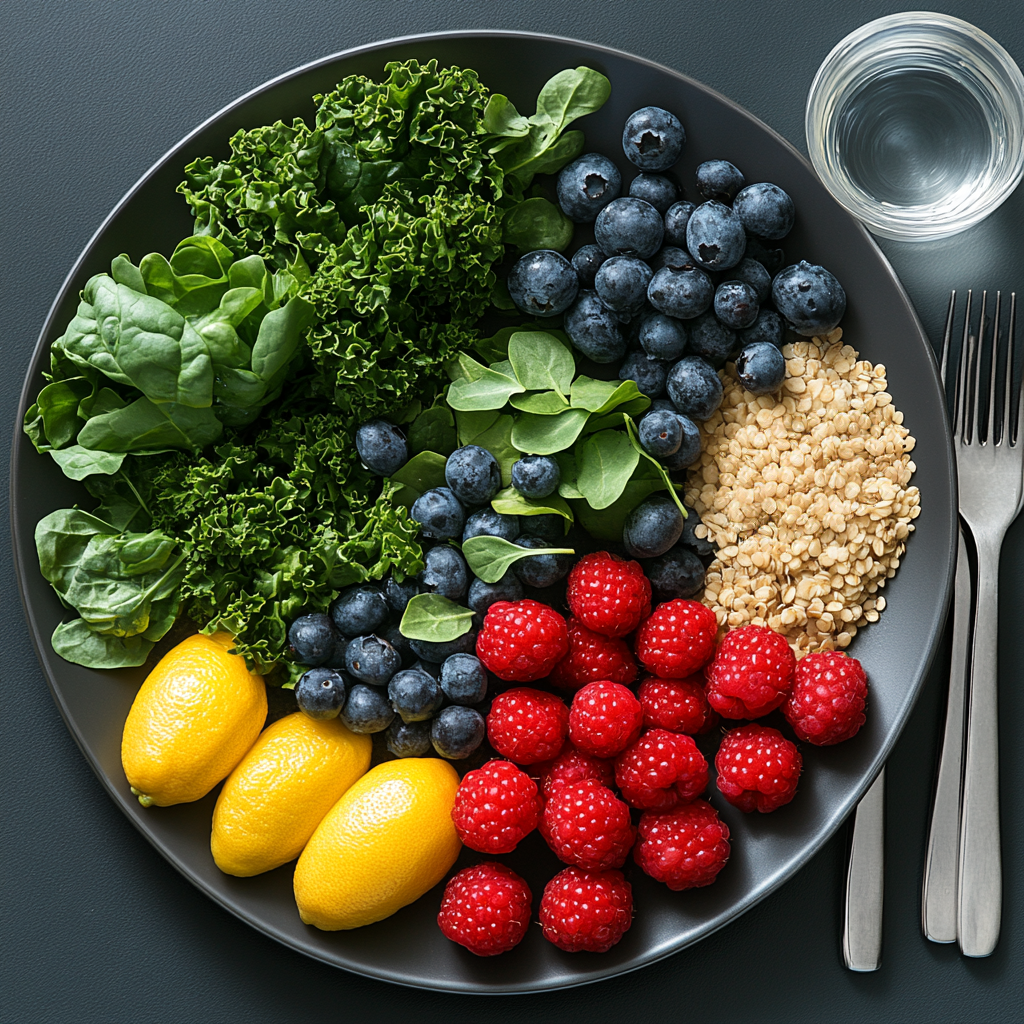
The rising global prevalence of hypertension – commonly referred to as high blood pressure – is a critical public health concern. One key factor that significantly influences blood pressure is nutrition, the sustenance derived from food that fuels the body's biological processes. Numerous studies have established a robust link between diet and hypertension, offering insight into how modifications in dietary patterns can help regulate blood pressure. This article elucidates the impact of nutrition on hypertension, highlighting evidence from recent scientific research.
Limit Sodium Intake: The first nutritional component worth noting is dietary sodium. Excessive sodium consumption has been linked to increased blood pressure in numerous epidemiological studies (Elliott et al., 1996; He et al., 2019). The science behind this link is rooted in the physiology of the kidneys and blood vessels. High sodium intake can affect kidney function, causing an increase in water retention, subsequently leading to an increase in blood volume and, therefore, pressure. Furthermore, excessive sodium can trigger a contraction of the blood vessels, contributing to hypertension (Farquhar et al., 2015).
One noteworthy study illustrating the sodium-hypertension connection is the DASH-Sodium trial, which demonstrated that reducing sodium intake in conjunction with the DASH diet (Dietary Approaches to Stop Hypertension) significantly reduced blood pressure (Sacks et al., 2001). The DASH diet emphasizes fruits, vegetables, and low-fat dairy products while reducing saturated and total fat. The American Heart Association recommends limiting sodium to less than 2,300 milligrams a day, with an ideal limit of no more than 1,500 milligrams for most adults.
Increase Potassium Consumption: Potassium, a vital mineral and electrolyte, is another dietary component to consider. An inverse relationship between potassium intake and blood pressure has been well-documented (D'Elia et al., 2014). Potassium aids in excreting sodium from the body, maintaining fluid balance, and relaxing the walls of blood vessels – actions contributing to lower blood pressure. Increasing dietary potassium can be achieved by consuming foods rich in this mineral, such as bananas, potatoes, leafy greens, and legumes.
Follow a Heart-Healthy Diet: The impact of dietary fats on hypertension is complex and depends on the type of fats consumed. The link between saturated fats and hypertension is less clear; however, there is growing evidence supporting the role of polyunsaturated fats, specifically omega-3 fatty acids, in reducing blood pressure (Miller et al., 2014). Omega-3 fats, primarily found in fatty fish like salmon and mackerel, have been shown to induce vasodilation and reduce inflammation, thus lowering blood pressure. Also, the DASH diet or the Mediterranean diet can help manage hypertension. These diets are rich in fruits, vegetables, lean proteins, whole grains, and low-fat dairy, and are low in saturated and trans fats (Sacks et al., 2001; Widmer et al., 2015). Another component is dietary fiber. A meta-analysis of 25 randomized controlled trials showed that increased dietary fiber intake was associated with a significant reduction in blood pressure in hypertensive individuals (Streppel et al., 2005). Dietary fiber may contribute to lower blood pressure by promoting weight loss, improving insulin sensitivity, and modulating the gut microbiota. Foods rich in dietary fiber include fruits, vegetables, whole grains, and legumes.
Moderate Alcohol and Caffeine Consumption: Consumption of alcohol and caffeine are two lifestyle factors that can substantially affect blood pressure. While moderate alcohol intake might have cardiovascular benefits, heavy and chronic consumption is a significant risk factor for hypertension (Roerecke & Rehm, 2017). The link between caffeine and blood pressure is complex, with acute intake causing a temporary rise, but the long-term effects are less well-defined (Mesas et al., 2011).
Increase Dietary Fiber: Increasing dietary fiber intake is an excellent strategy for reducing hypertension. Dietary fiber helps regulate blood pressure by promoting weight loss, improving insulin sensitivity, and modulating the gut microbiota. It also aids in reducing LDL cholesterol levels, a contributing factor to hypertension. By incorporating more fiber into the diet, individuals can lower their blood pressure naturally and promote better cardiovascular health. Foods rich in fiber, such as fruits, vegetables, whole grains, and legumes, should be prioritized in daily meals in order to help lower blood pressure levels (Streppel et al., 2005).
The role of micronutrients should not be overlooked. Calcium, magnesium, and vitamin D all play a role in regulating blood pressure. However, the data are somewhat inconsistent, and more research is needed to understand their role fully (Houston & Harper, 2008).
In summary, a substantial body of evidence supports the critical role of nutrition in the management and prevention of hypertension. Sodium and potassium balance, types of dietary fats, fiber intake, and overall dietary patterns significantly impact blood pressure. A healthy diet should be an integral part of the strategy for managing hypertension. However, individual differences in physiology, genetic predisposition, and lifestyle should also be considered when crafting a dietary plan. Future research should continue to refine our understanding of the link between nutrition and hypertension, with a focus on personalized nutrition to provide optimal outcomes for individuals.
References:
- D'Elia, L., Barba, G., Cappuccio, F. P., & Strazzullo, P. (2014). Potassium intake, stroke, and cardiovascular disease a meta-analysis of prospective studies. J Am Coll Cardiol, 63(14), 1452-1459.
- Elliott, P., Stamler, J., Nichols, R., Dyer, A. R., Stamler, R., Kesteloot, H., & Marmot, M. (1996). Intersalt revisited: further analyses of 24 hour sodium excretion and blood pressure within and across populations. BMJ, 312(7041), 1249–1253.
- Farquhar, W. B., Edwards, D. G., Jurkovitz, C. T., & Weintraub, W. S. (2015). Dietary sodium and health: more than just blood pressure. Journal of the American College of Cardiology, 65(10), 1042-1050.
- He, F. J., Li, J., & Macgregor, G. A. (2013). Effect of longer-term modest salt reduction on blood pressure. Cochrane Database of Systematic Reviews, (4).
- Houston, M., & Harper, K. J. (2008). Potassium, magnesium, and calcium: their role in both the cause and treatment of hypertension. Journal of clinical hypertension, 10(7), 3-11.
- Mesas, A. E., Leon-Muñoz, L. M., Rodriguez-Artalejo, F., & Lopez-Garcia, E. (2011). The effect of coffee on blood pressure and cardiovascular disease in hypertensive individuals: a systematic review and meta-analysis. The American journal of clinical nutrition, 94(4), 1113-1126.
- Miller, P. E., Van Elswyk, M., & Alexander, D. D. (2014). Long-chain omega-3 fatty acids eicosapentaenoic acid and docosahexaenoic acid and blood pressure: a meta-analysis of randomized controlled trials. American journal of hypertension, 27(7), 885-896.
- Roerecke, M., & Rehm, J. (2017). Alcohol consumption, drinking patterns, and ischemic heart disease: a narrative review of meta-analyses and a systematic review and meta-analysis of the impact of heavy drinking occasions on risk for moderate drinkers. BMC medicine, 12(1), 1-13.
- Sacks, F. M., Svetkey, L. P., Vollmer, W. M., Appel, L. J., Bray, G. A., Harsha, D., ... & Karanja, N. (2001). Effects on blood pressure of reduced dietary sodium and the Dietary Approaches to Stop Hypertension (DASH) diet. New England Journal of Medicine,344(1), 3-10.
- Streppel, M. T., Arends, L. R., van 't Veer, P., Grobbee, D. E., & Geleijnse, J. M. (2005). Dietary fiber and blood pressure: a meta-analysis of randomized placebo-controlled trials. Archives of internal medicine, 165(2), 150-156.
- Widmer, R. J., Flammer, A. J., Lerman, L. O., & Lerman, A. (2015). The Mediterranean diet, its components, and cardiovascular disease. The American journal of medicine, 128(3), 229-238.




